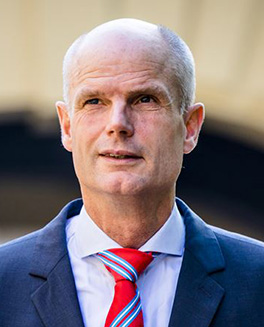PARAMARIBO/AMSTERDAM, (Reuters) – Suriname politicians yesterday slammed Holland’s Foreign Minister Stef Blok for saying the former Dutch colony was a “failed state” as a result of its diverse ethnic makeup.
The small country on South America’s Atlantic coast includes a mix of ethnicities including people of East Indian, Chinese and Dutch ancestry as well indigenous peoples and maroons, who are descended from escaped slaves.
Andre Misiekaba, who is of maroon origin and a member of parliament, told website De Ware Tijd that Blok’s comments were off the mark because Suriname is a strong multicultural society.
“This minister of foreign affairs of the Netherlands does not know the first thing about the ins and outs of Suriname,” he said.
Chandrikapersad Santokhi of the opposition Progressive Reform Party, who is of East Indian descent, said the country’s problems are the fault of its governing leaders.
“That Suriname under this government has become a country that some refer to as a ‘failed state’ is not due to its multicultural composition,” said Santokhi in comments published by local website Star News. “Suriname is faced with a lack of good governance and unrestrained corruption.”
Blok, a member of the conservative VVD party of Dutch Prime Minister Mark Rutte, made the comments at the gathering in The Hague on July 10, but the remarks came to wider attention only after video appeared on Dutch TV programme Zembla yesterday.
“Give me an example of a multi-ethnic, multicultural society, where the indigenous population still live… where they live in a peaceful, societal union,” Blok told a gathering of Dutch employees of international organisations.
Someone in the audience suggested Suriname.
“I admire your optimism,” he replied. “Suriname is a failed state and that is very much linked to its ethnic composition.”
Blok told Zembla yesterday that his “aim was to stimulate an open exchange and to hear the participants’ experiences … During the closed meeting, I used illustrations that could come across as badly chosen in public debate.”
In a statement issued through his Twitter account, Blok said his language was too strong and he regretted the offence it caused.
Suriname, which became independent from the Netherlands in 1975, has had an occasionally troubled political history.
President Desi Bouterse, in office since an election in 2010, previously ruled the country in the 1980s after taking power as the leader of a violent military coup.
He was convicted in absentia in the Netherlands for cocaine trafficking, on charges he says were trumped up by the Dutch government.
Lawmakers from several Dutch political parties, including all members of the governing coalition, demanded an explanation for Blok’s remarks.
Lawmaker Kees Verhoeven of the centre left D-66 party, a coalition member, called the remarks “incomprehensible” in an open letter asking Blok for an explanation.
In the same video, Blok discussed African tribes and religious groups as examples of people’s inability to get along.
“I can’t see the difference between a Hutu and a Tutsi, nor between a Sunni or a Shi’ite,” he said, referring to two central African tribes and the two major sects of Islam. “Unfortunately, they can. Probably somewhere deep in our genes, we want a defined group” to belong to, he said.

